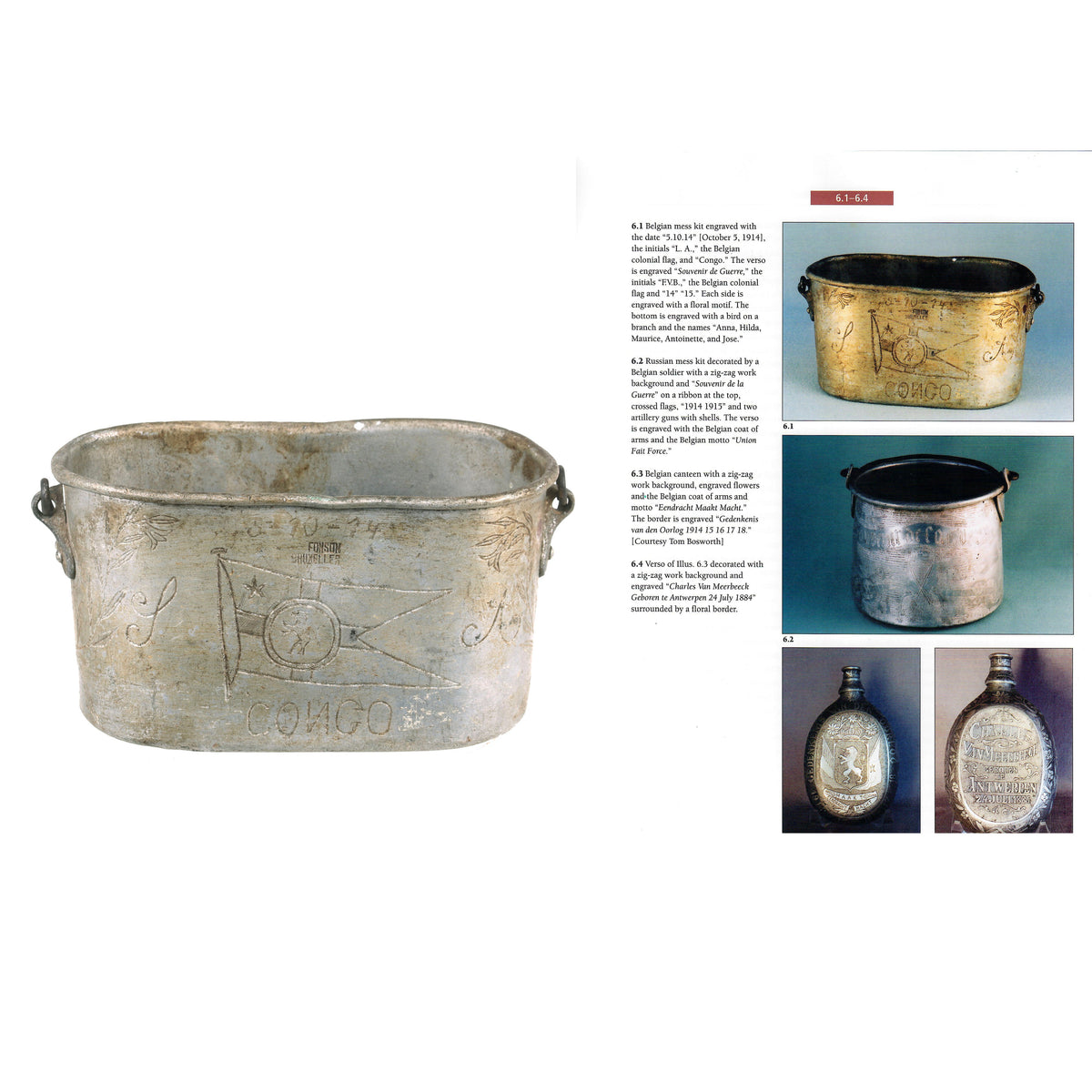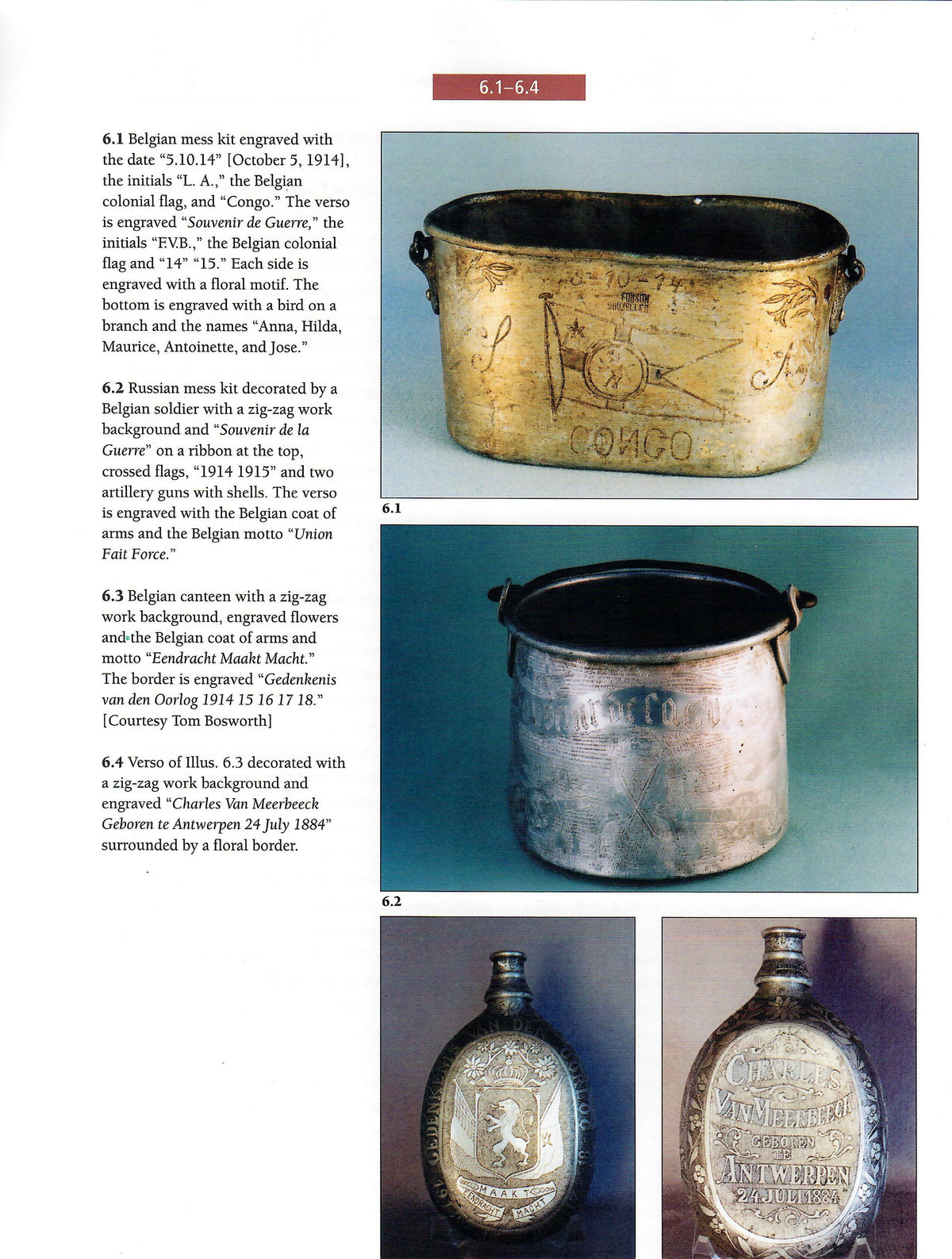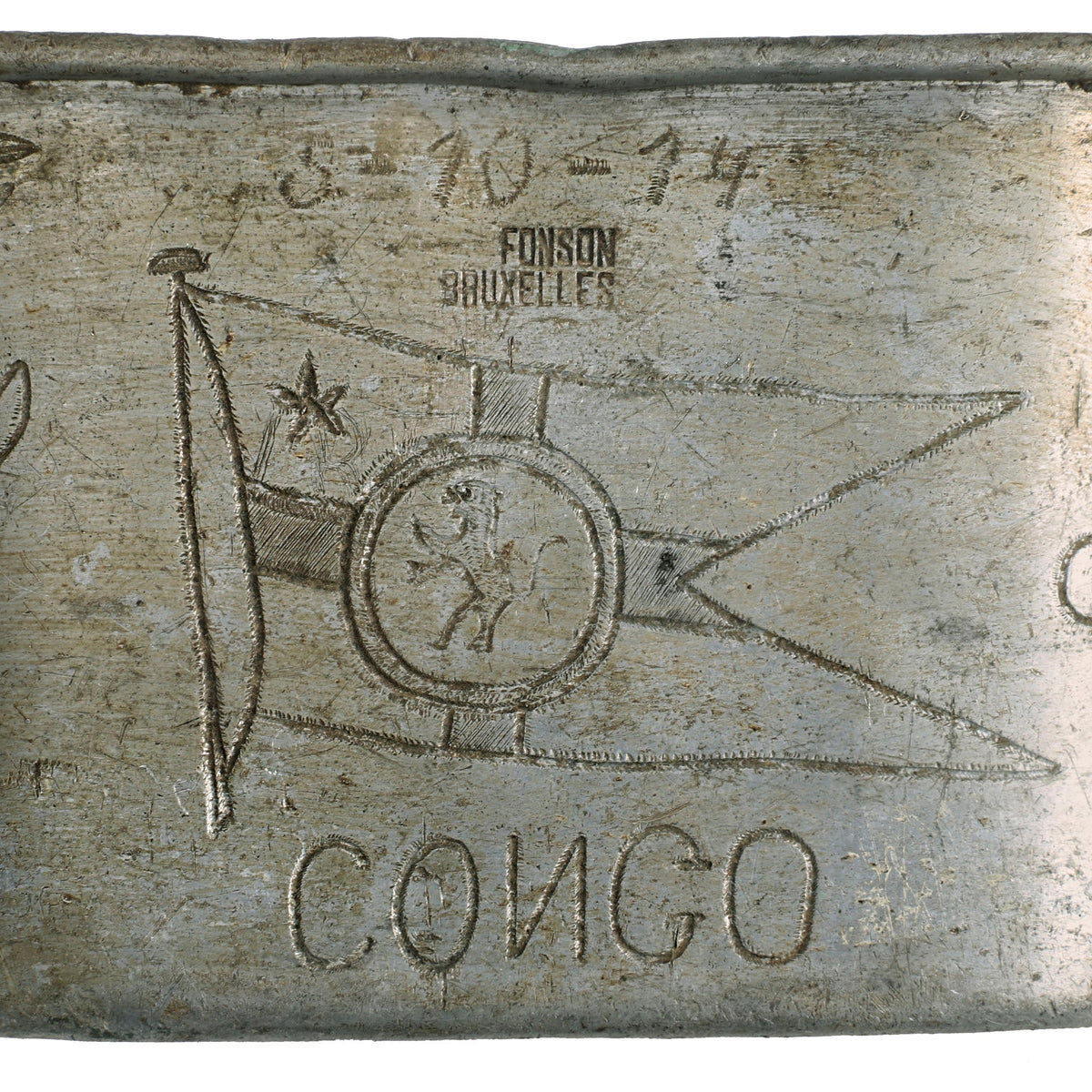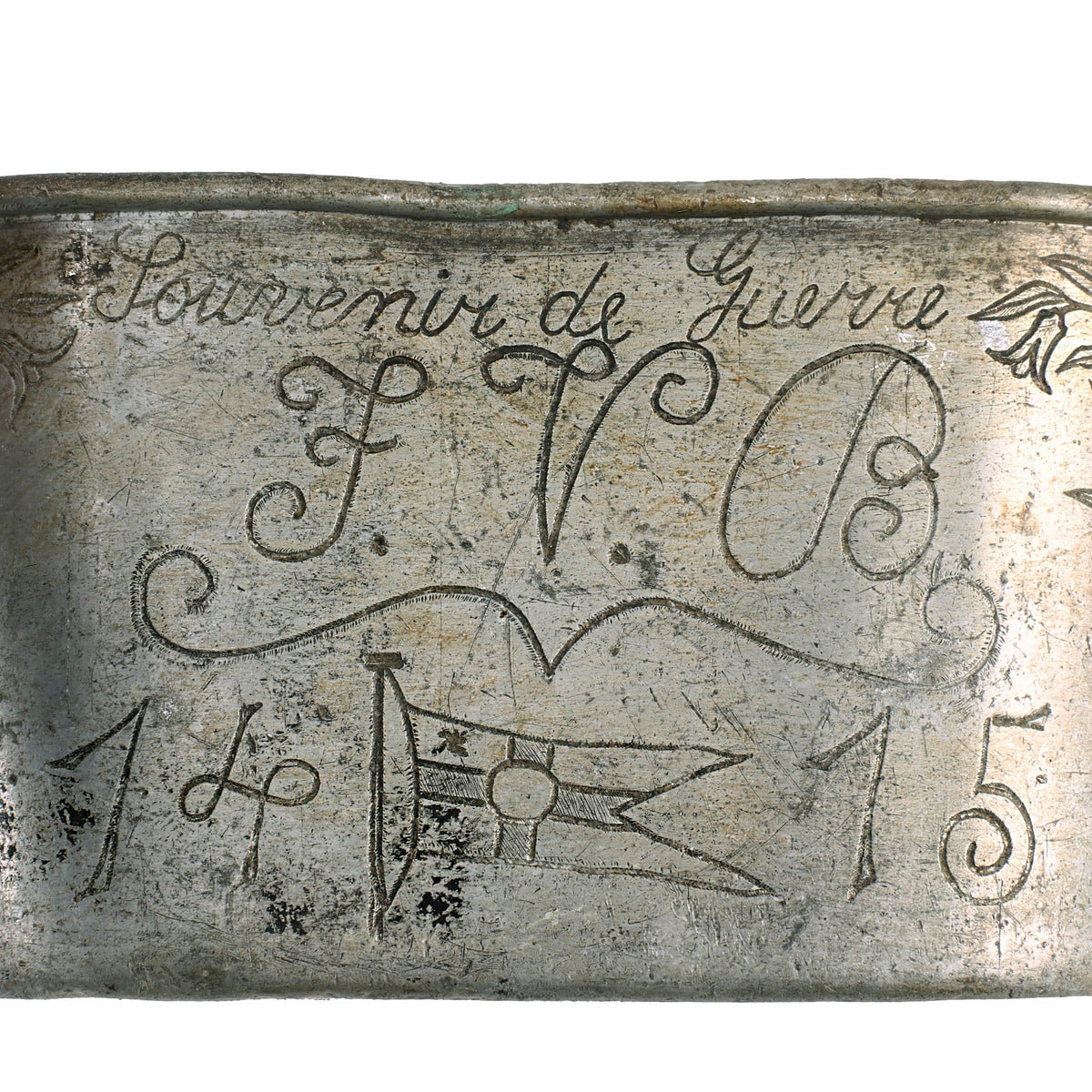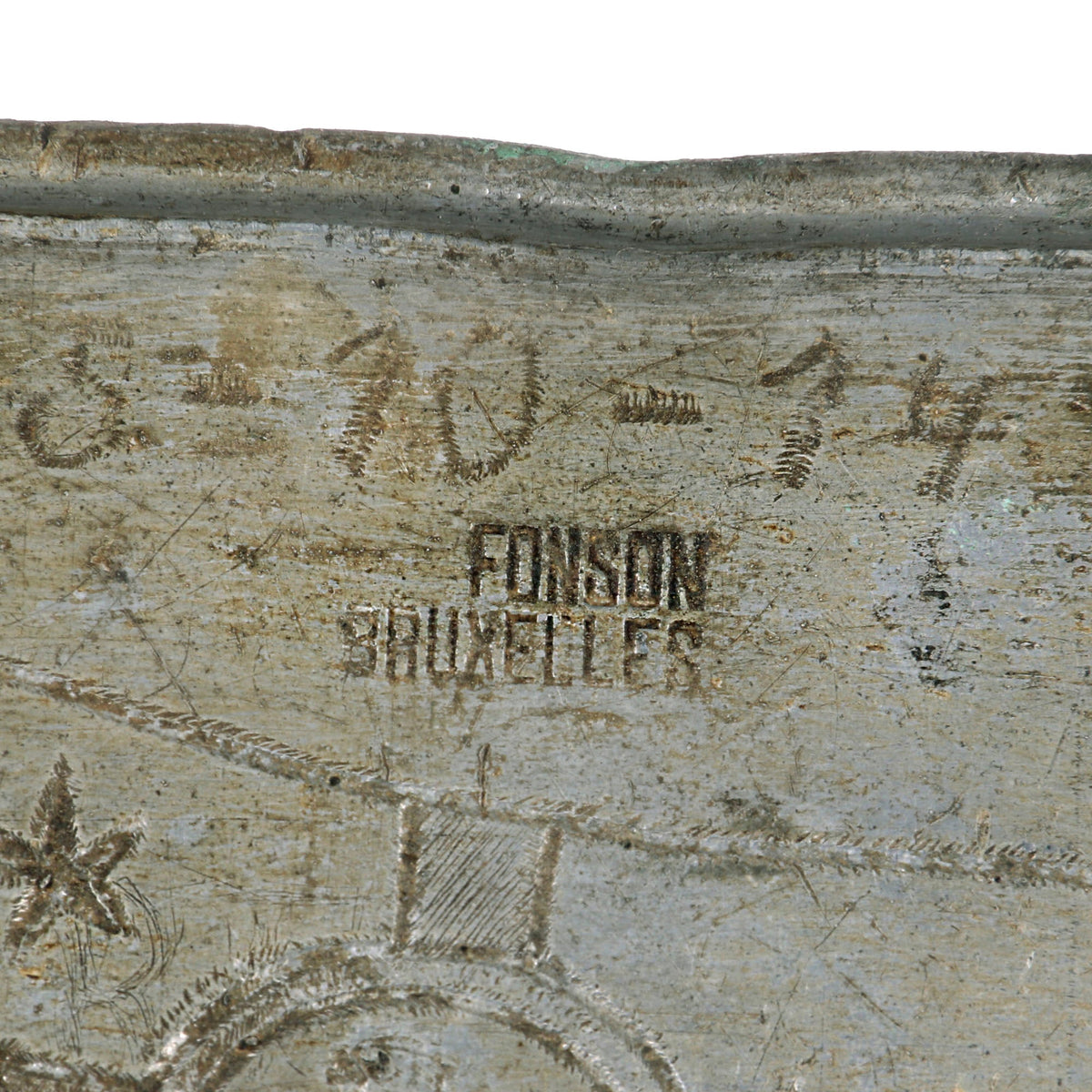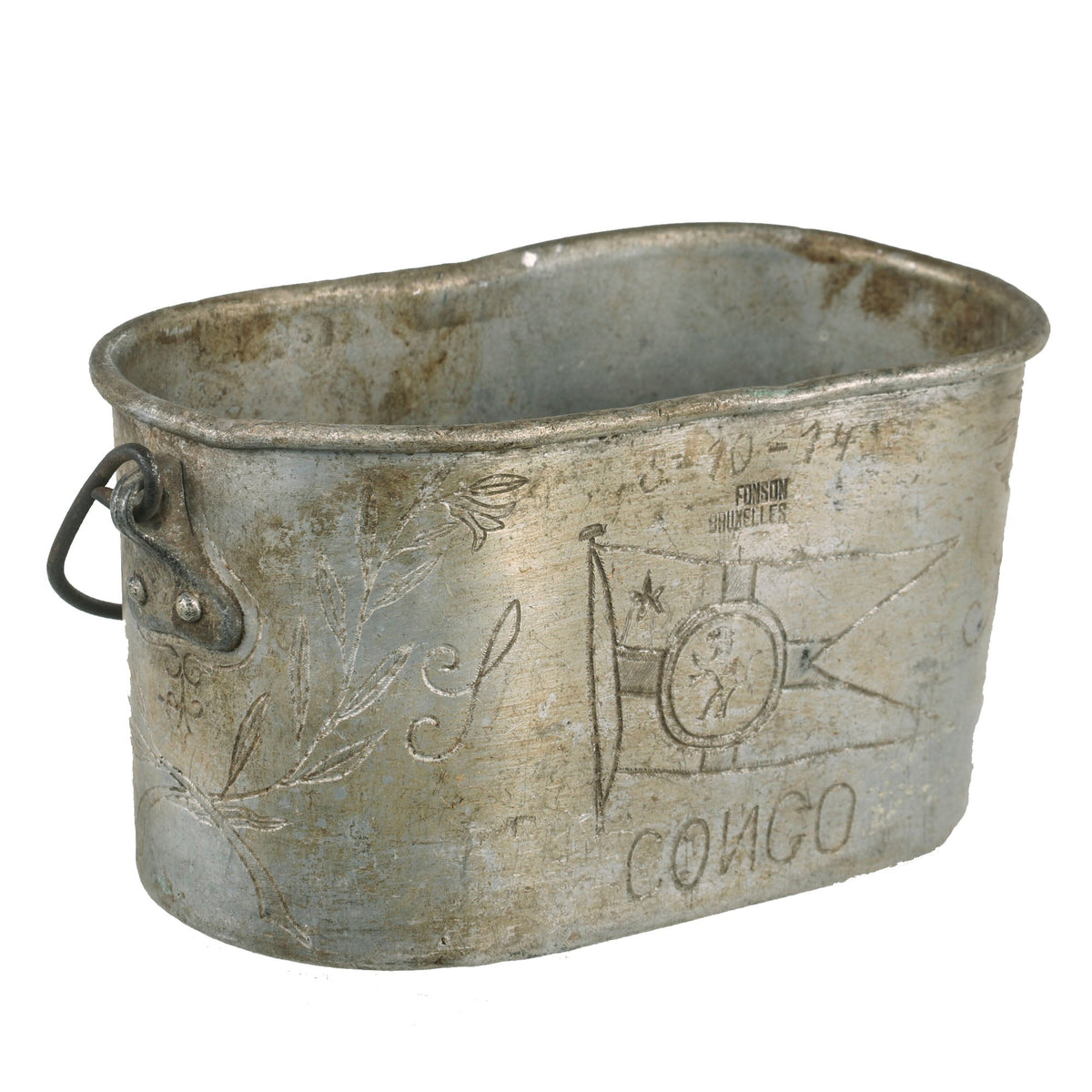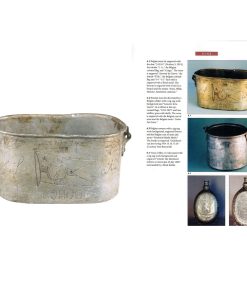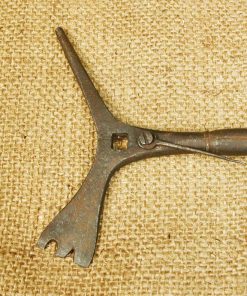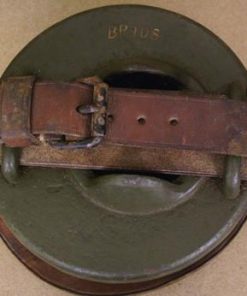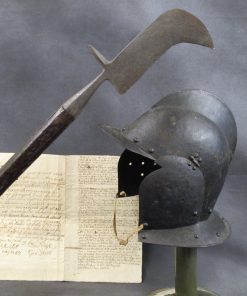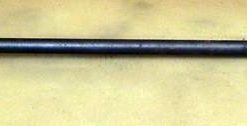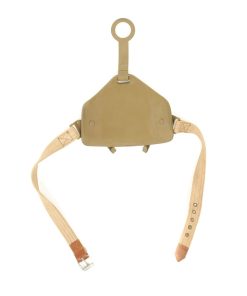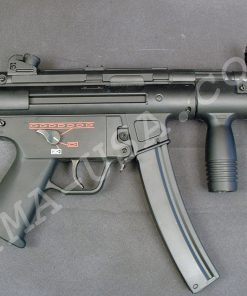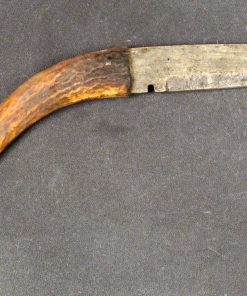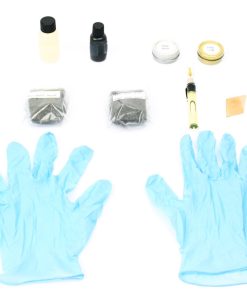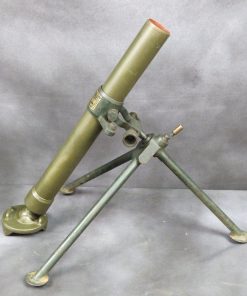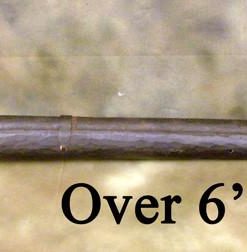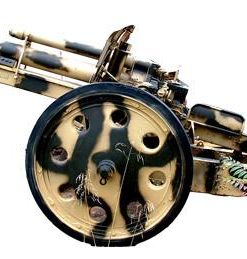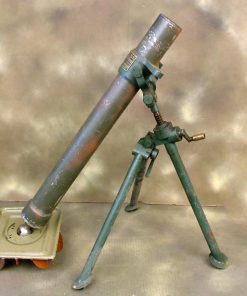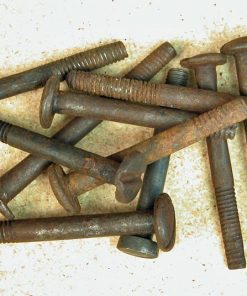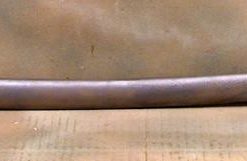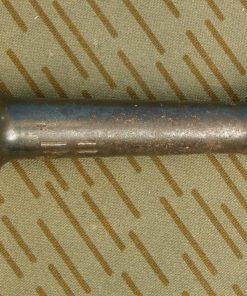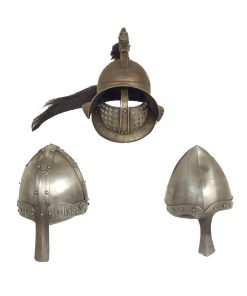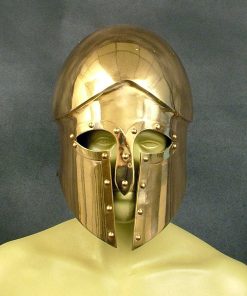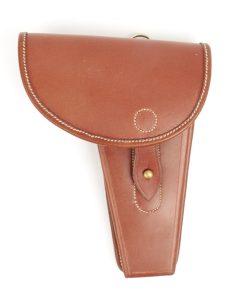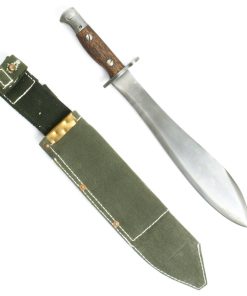Original Belgian WWI Engraved Mess Kit Trench Art Dated 1914 – Featured In The Book “Trench Art, An Illustrated History” by Jane Kimball on Page 224 Original Items
$ 250,00 $ 100,00
Trench art is any decorative item made by soldiers, prisoners of war, or civilians where the manufacture is directly linked to armed conflict or its consequences. It offers an insight not only to their feelings and emotions about the war, but also their surroundings and the materials they had available to them.
Not limited to the World Wars, the history of trench art spans conflicts from the Napoleonic Wars to the present day. Although the practice flourished during World War I, the term ‘trench art’ is also used to describe souvenirs manufactured by service personnel during World War II. Some items manufactured by soldiers, prisoners of war or civilians during earlier conflicts have been retrospectively described as trench art.
The trench art was done by a Belgian soldier. Featured In The Book “Trench Art, An Illustrated History” by Jane Kimball on Page 224
Belgian mess kit engraved with the date “5.10.14” [October 5, 1914], the initials “L. A.,” the Belgian colonial flag, and “Congo.” The verso is engraved “Souvenir de Guerre,” the initials “EV.B.,” the Belgian colonial flag and “14” “15.” Each side is engraved with a floral motif. The bottom is engraved with a bird on a branch and the names “Anna, Hilda, Maurice, Antoinette, and Jose.”
A printed full color glossy copy of page 224 will accompany the mess kit.
Fast Shipping with Professional Packaging
Thanks to our longstanding association with UPS FedEx DHL, and other major international carriers, we are able to provide a range of shipping options. Our warehouse staff is expertly trained and will wrap your products according to our exact and precise specifications. Prior to shipping, your goods will be thoroughly examined and securely secured. We ship to thousands clients each day across multiple countries. This shows how we're dedicated to be the largest retailer on the internet. Warehouses and distribution centres can be located throughout Europe as well as the USA.
Note: Orders with more than one item will be assigned a processing date depending on the item.
Before shipping before shipping, we'll conduct a thorough inspection of the items you have ordered. Today, the majority of orders will be delivered within 48 hours. The delivery time will be between 3-7 days.
Returns
The stock is dynamic and we cannot completely manage it because multiple stakeholders are involved, including our factory and warehouse. So the actual stock may alter at any time. It's possible that you may not receive your order once the order has been made.
Our policy is valid for a period of 30 days. If you don't receive the product within 30 days, we are not able to issue a refund or an exchange.
You can only return an item if it is unused and in the same state as the day you received it. You must have the item in its original packaging.
Related products
Uncategorized
Uncategorized
Armored Burgonet Helmet & Polearm from Scottish Castle Leith Hall Circa 1700 Original Items
Uncategorized
Uncategorized
Uncategorized
Uncategorized
Uncategorized
Uncategorized
Band of Brothers ORIGINAL GERMAN WWII Le. F.H. 18 10.5cm ARTILLERY PIECE Original Items
Uncategorized
Uncategorized
Uncategorized
Uncategorized
Uncategorized
Uncategorized
Angolan Rebel 1970s era 60mm Inert Display Mortar from Angolan Civil War Original Items
Uncategorized
Uncategorized
Uncategorized
Armoured Fighting Vehicles of the World: AFVs of World War One (Hardcover Book) New Made Items
